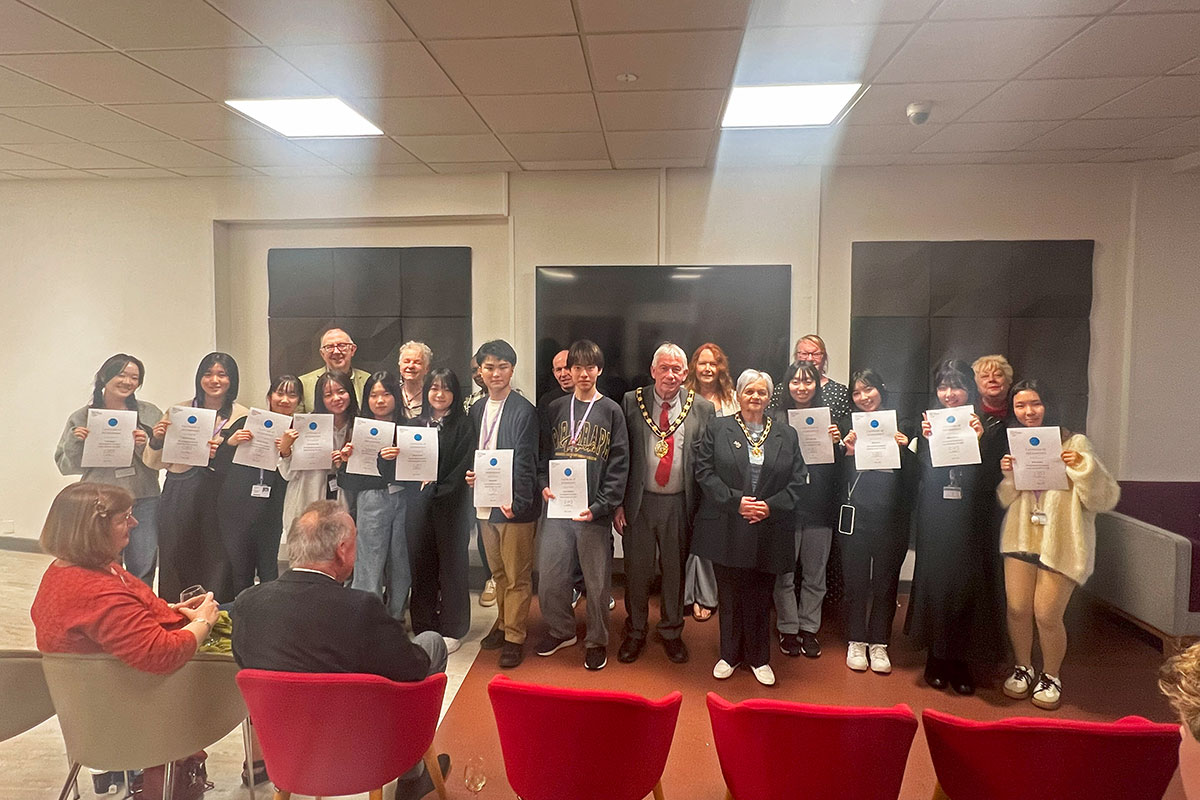A new Gener-AI-tion in further education

Generative AI is revolutionising higher education institutions. Creating better connected and intelligent campus’ is a top priority in 2024 and further education institutions are exploring technologies that offer solutions that will empower staff and students.
The world of further education is no stranger to technology and automation. After all, when today’s students begin to consider which careers they might like to pursue, their first point of call is often the government’s DYSAC tool—a psychometric digital assessment that reviews users’ skills, interests, motivations, and preferences to suggest vocations and pathways. But in 2024, technology looks set to play a greater role than ever.
The advancement of artificial intelligence (AI) means that further education institutions may be able to deliver more coordinated, connected efforts that help students succeed, which is especially vital as some still try to overcome the setbacks imposed during the pandemic. We have also seen recently that there is a growing demand for digitisation and centralisation of records, which allows schools and teachers to access and secure vital data. Altogether, AI looks set to transform further education, yielding more successful outcomes for students and their teachers. But how exactly will this play out? And for whom?
The impact of AI on student learning
Though hybrid learning is now well established, digital transformation initiatives will continue to play a significant role in supporting students, granting them unprecedented access to information and support.
For instance, AI tools can be used almost like a ‘personal tutor’ that students interact with and question at will. Chatbots can answer routine queries 24/7, offering students help whenever required and helping to reduce stress or worry. They can also be used as an advanced jumping-off point—sparking ideas, starting drafts, summarising information and giving students self-test opportunities. Speaking of testing, some tools can provide instant feedback on assignments and exams, enabling students to identify their strengths and weaknesses and begin working on these areas of improvement straightaway. Plus, AI-powered study apps can help with effective time management, send study reminders, and support memorisation and comprehension.
For those with special needs, AI tools can also provide extra support including translation services, voice recognition and visual or auditory aids. Similarly to DYSAC, AI can assist in FE course selection and career advice based on special needs students’ interests, goals and performance. And perhaps most importantly of all, by using AI tools, students will gain early exposure to technologies they are now nearly guaranteed to encounter in their future professions.
Innovative teacher resources and support
AI is also set to transform how teachers approach their education. The recent proliferation of learning technology, largely as a result of hybrid schooling, brought on an increase in data, which can be analysed to create a more personalised learning for students. This increased data access will empower staff to identify trends and develop tailored approaches for individuals, while students will benefit from enhanced transparency and access. It could even help with assessing student work, with marking having long been a time-consuming bane for teachers.
Crucially, generative AI will also continue to revolutionise further education institutions by creating a more connected and intelligent campus. AI can and will be used as an assistant, aiding staff, colleges and universities in locating essential information and aggregating data for comprehensive reports and insights. AI-driven tools can create interactive learning environments, such as simulations and virtual reality, supercharging comprehension and engagement. New tools can even detect AI-written content to spot and minimise academic misconduct.
Previously, education was often one-size-fits-all. The advent of generative AI tools promise the possibility of an individualised approach, yielding more successful outcomes for students and their teachers. Research from September 2023 found that a third of teachers already use AI tools to help with their work, doubling in size since May of the same year. This figure is only set to grow further in the coming months.
Streamline admin tasks to drive greater student success
Finally, an oft-forgotten but irreplaceable part of any educational service is its administration. Here, digital tools like AI and automation can again provide outstanding academic support. These digital solutions help to simplify data collection by eliminating paper-based forms and processes, saving time and money across activities like application evaluation through manual process automation. They enable data-driven decision-making by visualising data on dashboards and reports and enhance communication and data sharing through system integrations. And, contrary to common fears about AI and security, they’re better at protecting students’ and staff’s most valuable data, using role-based access to ensure security and integrity.
Unlocking new possibilities
AI and automation can prove to be hugely beneficial developments to the world of further education. The UK government and Department for Education agree, with recent initiatives including a two-day hackathon for teachers, school leaders and data scientists to create AI solutions that tackle real-life issues like teacher workload, as well as a £2 million investment into AI tools for Oak National Academy. With the state now fully backing AI, the technology is set to form a key pillar of the future of further education. The teachers and staff who embrace it early will be most likely to lead the next generation of learning.
By Noel Loughrin, Strategic Solutions Manager at Laserfiche
FE News on the go
Welcome to FE News on the Go, the podcast that delivers exclusive articles from the world of further education straight to your ears.
We are experimenting with Artificial Intelligence to make our exclusive articles even more accessible while also automating the process for our team of project managers.
In each episode, our thought leaders and sector influencers will delve into the most pressing issues facing the FE.











Responses